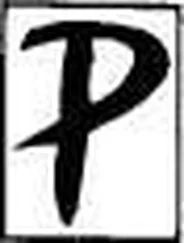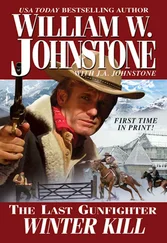William Johnstone - A Good Day to Die
Здесь есть возможность читать онлайн «William Johnstone - A Good Day to Die» весь текст электронной книги совершенно бесплатно (целиком полную версию без сокращений). В некоторых случаях можно слушать аудио, скачать через торрент в формате fb2 и присутствует краткое содержание. Год выпуска: 2012, Издательство: Kensington Publishing Corp., Жанр: Старинная литература, на английском языке. Описание произведения, (предисловие) а так же отзывы посетителей доступны на портале библиотеки ЛибКат.
- Название:A Good Day to Die
- Автор:
- Издательство:Kensington Publishing Corp.
- Жанр:
- Год:2012
- ISBN:нет данных
- Рейтинг книги:4 / 5. Голосов: 1
-
Избранное:Добавить в избранное
- Отзывы:
-
Ваша оценка:
- 80
- 1
- 2
- 3
- 4
- 5
A Good Day to Die: краткое содержание, описание и аннотация
Предлагаем к чтению аннотацию, описание, краткое содержание или предисловие (зависит от того, что написал сам автор книги «A Good Day to Die»). Если вы не нашли необходимую информацию о книге — напишите в комментариях, мы постараемся отыскать её.
A Good Day to Die — читать онлайн бесплатно полную книгу (весь текст) целиком
Ниже представлен текст книги, разбитый по страницам. Система сохранения места последней прочитанной страницы, позволяет с удобством читать онлайн бесплатно книгу «A Good Day to Die», без необходимости каждый раз заново искать на чём Вы остановились. Поставьте закладку, и сможете в любой момент перейти на страницу, на которой закончили чтение.
Интервал:
Закладка:
SAVAGE TEXAS
A GOOD DAY TO DIE
William W. Johnstone
with J. A. Johnstone

PINNACLE BOOKS
Kensington Publishing Corp.
www.kensingtonbooks.com

All copyrighted material within is Attributor Protected.
Table of Contents
Title Page
ONE
TWO
THREE
FOUR
FIVE
SIX
SEVEN
EIGHT
NINE
TEN
ELEVEN
TWELVE
THIRTEEN
FOURTEEN
FIFTEEN
SIXTEEN
SEVENTEEN
EIGHTEEN
NINETEEN
TWENTY
TWENTY-ONE
TWENTY-TWO
TWENTY-THREE
TWENTY-FOUR
TWENTY-FIVE
TWENTY-SIX
TWENTY-SEVEN
Copyright Page
Notes
ONE
On a night in late May 1866, Comanche Chief Red Hand took up the Fire Lance to proclaim the opening of the warm weather raiding season—a time of torture, plunder, and murder. For warlike Comanche braves, the best time of the year.
Six hundred and more Comanche men, women, and children were camped near a stream in a valley north of the Texas panhandle, on land between the Canadian and Arkansas rivers. The site, Arrowhead Rock, lay deep in the heart of the vast, untamed territory of Comancheria, home grounds of the tribal nation.
The gathering was made up mostly of two main subgroups, the Bison Eyes and the Dawn Hawks, along with a number of lesser clans, relations, and allies.
Red Hand, a Bison Eye, was a rising star who had led a number of successful raids in recent seasons past. Many braves, especially those of the younger generation, were eager to attach themselves to him.
Others had come to hear him out and make up their own minds about whether or not to follow his lead. Not a few had come to keep a wary eye on him and see what he was up to.
All brought their families with them, from the oldest squaws to the youngest babes in arms. They brought their tipis and personal belongings, horse herds, and even dogs.
The Comanche were a mobile folk, nomads who followed the buffalo herds across the Great Plains. They spent much of their lives on horseback and were superb riders. They were fierce fighters, arguably the most dangerous Indian tribe in the West. They gloried in the title of Lords of the Southern Plains.
Farther southwest—much farther—lay the lands of the Apache, relentless desert warriors of fearsome repute. During their seasonal wanderings Comanches raided Apaches as the opportunity presented itself, but the Apache did not strike north to raid Comancheria. This stark fact spoke volumes about the relative deadliness of the two.
The camp on the valley stream was unusual in its size, the tribesmen generally preferring to travel in much smaller groups. The temporary settlement had come into being in response to Red Hand’s invitation, taken by his emissaries to the various interested parties. Invitation, not summons.
A high-spirited individual, the Comanche brave was jealous of his freedom and rights. His allegiance was freely given and just as freely withdrawn. Warriors of great deeds were respected, but not slavishly submitted to. A leader gained followers by ability and success; incompetence and failure inevitably incited mass desertions.
It was a mark of Red Hand’s prowess that so many had come to hear his words.
The campsite at Arrowhead Rock lay on a well-watered patch of grassy ground. Cone-shaped tipis massed along the stream banks. Smoke from many cooking fires hazed the area. The tipis had been given over to women and children; the men were elsewhere. Packs of half-wild, half-starved dogs chased each other around the campgrounds, snarling and yapping.
The horse herds were picketed nearby. Comanches reckoned their wealth in horses, as white men did in gold. The greater the thief, the more he was respected and envied by his fellows.
For such a conclave, an informal truce reigned, whereby the braves of various clans held in check their craving to steal each other’s horses ... mostly.
North of the camp, a long bowshot away, the land dipped into a shallow basin, a hollow serving as a kind of natural amphitheater. It was spacious enough to comfortably hold the two hundred and more warriors assembled there under a horned moon. No females were present at the basin.
To a man, they were in prime physical condition. There was no place in the Comanche nation for weaklings. Men were warriors, doing the hunting, raiding, fighting, and killing—sometimes dying. Women did all the other work, the drudgery of the tribe.
The braves were high-spirited, raucous. Much horseplay and boasting of big brags occurred. It had been a long winter; they looked forward to the wild free life of raiding south with eager anticipation. An air of keen interest hung over them as they waited impatiently for Red Hand to take the fore.
At the northern center rim of the basin stood a triangular-shaped rock about twenty feet high. Shaped like an arrowhead planted point-up in the ground, it gave the site its name. Among Comanche warrior society, the arrowhead was an emblem of power and danger, giving the stone an aura of magical potency.
A fire blazed near its base. Yellow-red tongues of flame leaped upward, wreathed with spirals of blue-gray smoke. Between the fire and the rock, a stout wooden stake eight feet tall had been driven into the ground.
The braves faced the rock, Bison Eyes grouped on the left, Dawn Hawks on the right. Both clans were strong, numerous, and well respected. Nearly evenly matched in numbers and fighting prowess, they were great rivals.
A stir went through the crowd. Something was happening.
A handful of shadowy figures stepped out from behind the rock, coming into view of those assembled in the hollow. They ranked themselves in a line behind the fire, forming up like a guard of honor in advance of their leader. Underlit by the flames’ red glare, they could be seen and recognized.
Mighty warriors all, men of renown, they made up Red Hand’s inner circle of trusted advisors and henchmen, his lieutenants.
Ten Scalps was a giant of a man, one of the strongest warriors in the Comanche nation. He’d taken ten scalps as a youth during his first raid. After that he stopped counting.
Sun Dog, his face wider than it was long, had dark eyes glinting like chips of black glass.
Little Bells, with twin strings of tiny silver bells plaited into his lion’s mane of shoulder-length hair, stood tall.
Badger was short and squat, with tremendous upper body strength and oversized, pawlike hands.
Black Robe, clad in a garment he’d stripped from a Mexican priest he’d slain and scalped, was next. Part long coat, part cape, the tattered garment gave him a weird, batlike outline.
The cadre’s appearance was greeted by the crowd with appreciative whoops, shrieks, and howls. The five stood motionless, faces impassive, arms folded across their chests. They held the pose for a long time, their stillness contrasting with the crowd’s mounting excitement.
After a moment, a lone man emerged from behind the rock into the firelight. He wore a war bonnet and carried a lance.
Читать дальшеИнтервал:
Закладка:
Похожие книги на «A Good Day to Die»
Представляем Вашему вниманию похожие книги на «A Good Day to Die» списком для выбора. Мы отобрали схожую по названию и смыслу литературу в надежде предоставить читателям больше вариантов отыскать новые, интересные, ещё непрочитанные произведения.
Обсуждение, отзывы о книге «A Good Day to Die» и просто собственные мнения читателей. Оставьте ваши комментарии, напишите, что Вы думаете о произведении, его смысле или главных героях. Укажите что конкретно понравилось, а что нет, и почему Вы так считаете.








